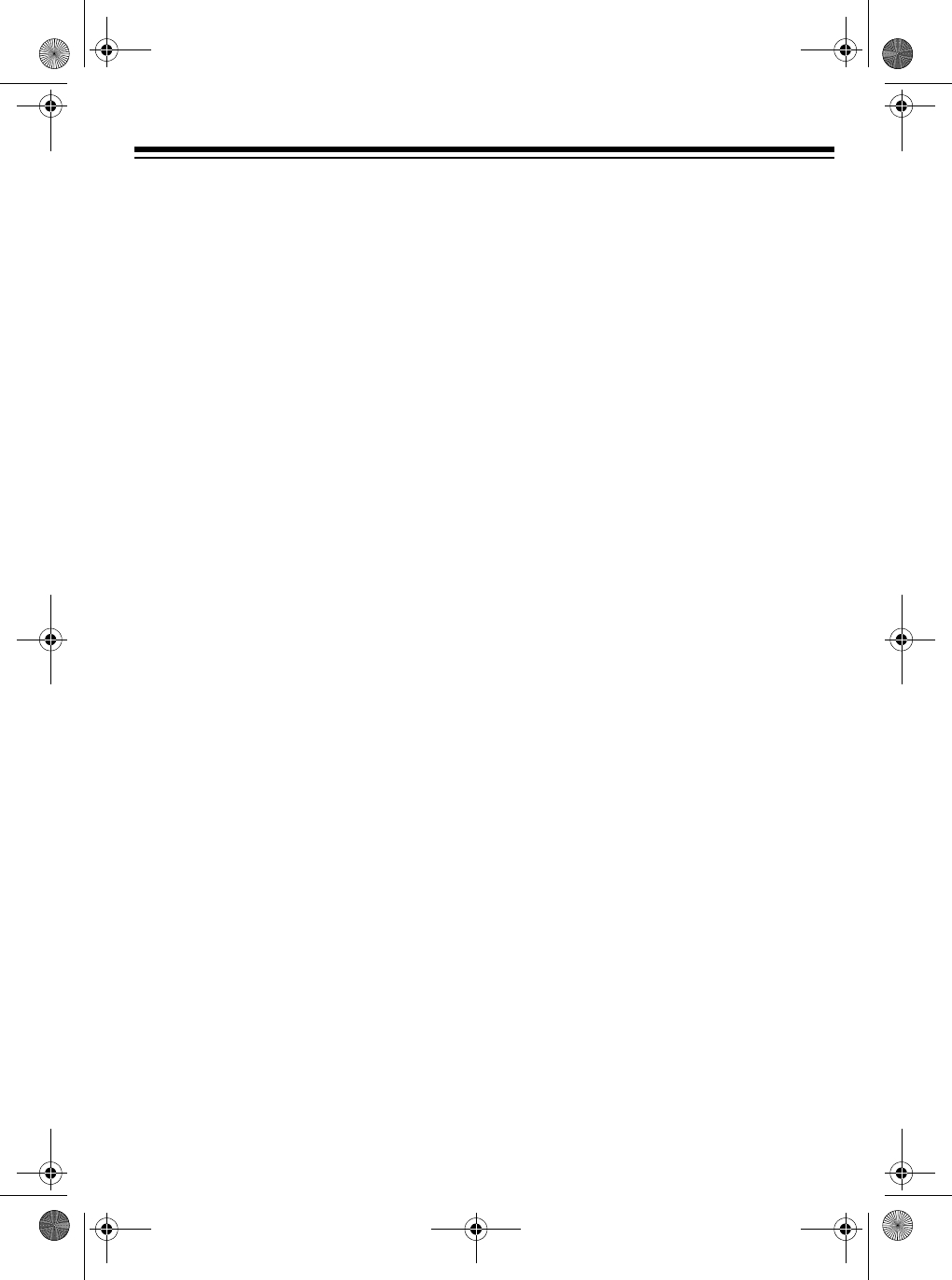
5
Important:
• Cordless phones such as this one
require AC power to operate. When
the AC power is off, you cannot dial
out or receive incoming calls using
your TAD-728. To be safe, you
should also have a phone that does
not need AC power to operate (not a
cordless phone) so you can still
make and receive calls if there is an
AC power failure.
• When AC power is lost,
PF appears
on the display to show a power fail-
ure occurred and the TAD-728 loses
the security access-protection code
connection between the base and
the handset. When power is
restored, put the handset on the
base briefly to restore this connec-
tion so you can use the handset.
READ THIS BEFORE
INSTALLATION
We have designed your phone to con-
form to federal regulations and you can
connect it to most phone lines. However,
each device that you connect to the tele-
phone line draws power from the line.
We refer to this power draw as the
phone's ringer equivalence number, or
REN. The REN is on the bottom of your
phone.
If you use more than one phone or other
device on the line, add up all the RENs.
If the total is more than five (three in ru-
ral areas), your phones might not ring. If
ringer operation is impaired, remove one
of the devices from the line.
FCC STATEMENT
Your telephone complies with Part 68 of
FCC Rules. You must, upon request,
provide the FCC registration number
and the REN to your phone company.
These numbers are on the bottom of the
base.
You must not connect your phone to any
of the following:
• coin-operated systems
• party-line systems
• most electronic key phone systems
This equipment complies with the limits
for a Class B digital device as specified
in Part 15 of FCC Rules. These limits
provide reasonable protection against
radio and TV interference in a residential
area. However, your equipment might
cause TV or radio interference even
when it is operating properly. To elimi-
nate interference, you can try one or
more of the following corrective mea-
sures.
• Reorient or relocate the receiving
antenna.
• Increase the distance between the
equipment and the radio or TV.
• Use outlets on different electrical cir-
cuits for the equipment and the
radio or TV.
Consult your local RadioShack store if
the problem still exists.
43-728.fm Page 5 Thursday, August 26, 1999 8:53 AM


















